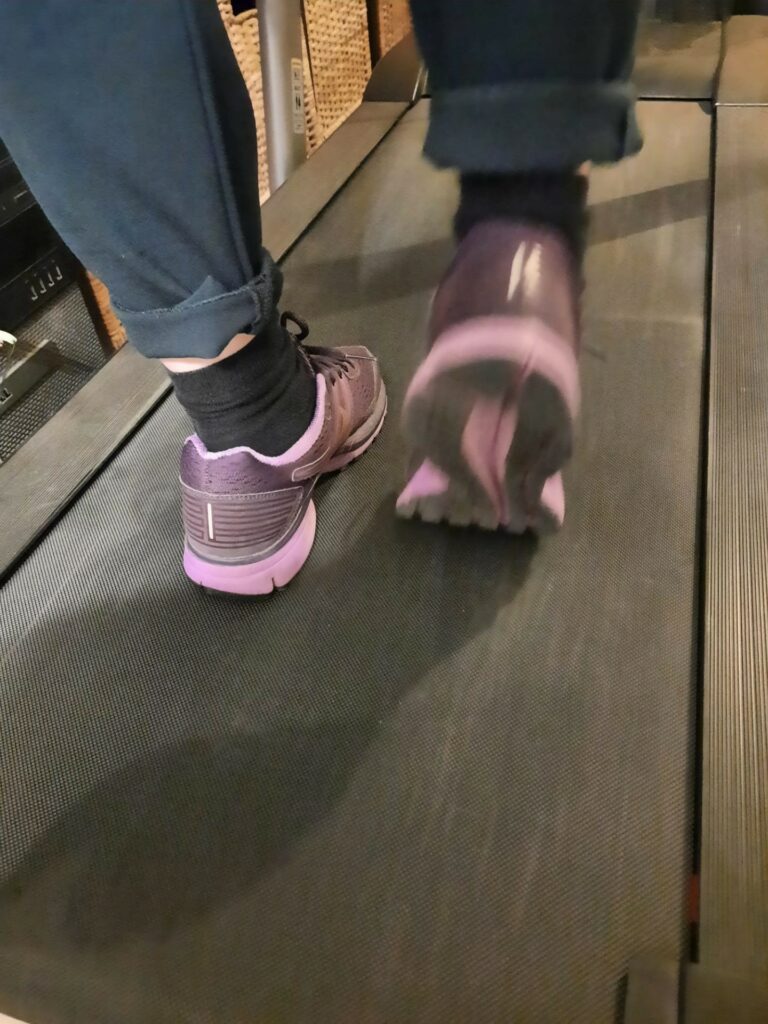We’ve made it through the second week of the step challenge. Some teams have already reached the target of one million steps, but there’s still plenty of time for the others to reach the final goal as well. This week we hear from ‘The Unicorns on the Move’ – a team of two colleagues from ICT, one engineer and two Revakis (Rehabilitation Sciences and Physiotherapy).
The most elementary function in life is our first steps. Wobbly at first, but step by step we begin to explore the world around us. Using our legs to walk was a prerequisite for human survival throughout evolution until… we developed machines and built computers and robots that could do physical work for us. Work has now become more and more sedentary, and even in our non-working hours, there’s a lot we can do without taking a single step. Until the 2000s, we used to do most of our food shopping on foot or by bike, but today we’re increasingly having our groceries delivered to our homes. Even cooking is being made easier by home deliveries of ready-made meals and food packages.
We still move, of course, but we mainly do it outside of our working hours. We do sports and run up and down to quieten that little voice in our heads that complains about how lazy we are. The big question, of course, is whether we really can compensate for our sedentary existence. Recent scientific research has indicated that we can’t. We can’t compensate for what is often eight hours of sitting down just by going to the gym in the evening.
In this even more difficult pandemic period, when working from home is the norm, we are moving even less than we do when we’re at work. To counteract that, there is the Millionaire Team Step Challenge: a million steps in 30 days in teams of five colleagues. It’s not meant to be a competition and prizes are raffled off among all the teams that make it to a million steps. And even for the teams that don’t make it, there are just as many prizes to be won. One million seems like a lot, but if we stick to the WHO’s ideal norm of 10 000 steps per person per day, it should be easy to achieve.
A total of 164 teams started the challenge off on the right foot. Looking at the battle going on at the top of the rankings, it’s clear that some people definitely see it as a competition. Four teams had already reached the finish line after just nine days. Teams are constantly overtaking each other and edging into the lead. And there’s plenty of healthy competition among the other teams too.
Our team is called ‘The Unicorns on the Move’. On 16 November, our very mixed group of two ICT staff, an engineer and two Revakis (Rehabilitation Sciences and Physiotherapy) started out on a journey to the pot of gold at the end of the Unicorn rainbow. Half of the other teams whizzed past our group at lightning speed, and on day three we were in 78th place with only 98,000 steps. Slowly, however, people started gossiping about who was in which team. ‘Are you in that team and how many steps have you done?’ ‘We’re hot on your heels.’ For some people in our team that’s an incentive to go the extra mile, because people hate to lose. But only for some – not everyone’s in it to win it.
Striding out at first light was an even greater motivator for some on the team, because you can’t beat beautiful sunrise and sunset scenes. The Sahara of Lommel and the meadows of Mortsel gave our step counters a boost. But even the treadmill in the living room and a late loop around the church are great motivations to keep on walking.
What’s much more important for our long-term health is incorporating regular exercise into everyday life. That calls for one of the most difficult changes we can make in our lives, namely changing our behaviour. Tips like those on the KeepMoving website are fine, but sticking to them every day requires big behavioural changes. After all, there are so many other distractions.
One million steps in 30 days shouldn’t be a problem for any of the teams taking part in the challenge – what’s really tough is fitting more exercise into our busy daily lives. Walking has always been a key aspect of humans’ evolution and survival. But it looks like we’ll have to learn how to get moving again, step by step.






